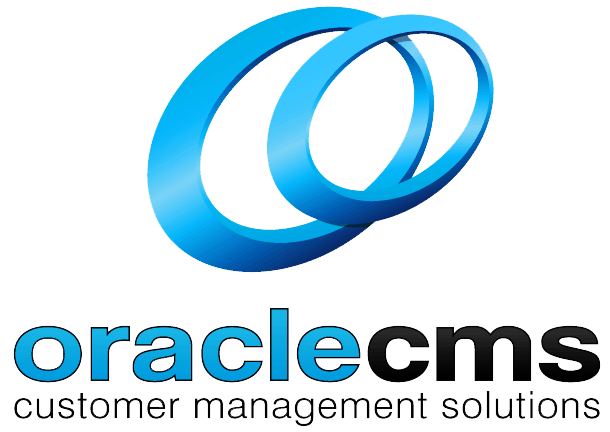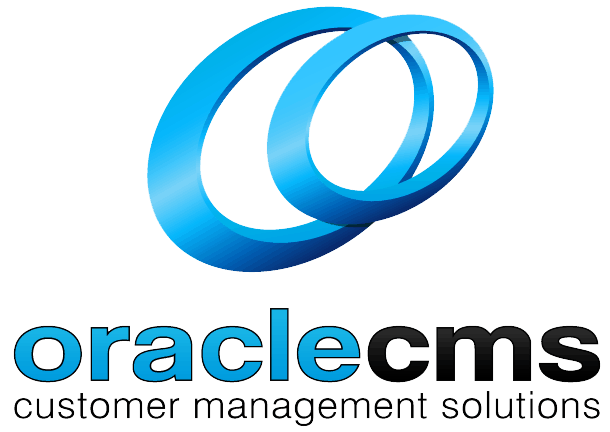
What Is a Cloud-Based Call Centre?
Customer service is crucial in shaping the overall customer experience, impacting everything from purchasing decisions to brand loyalty. To deliver exceptional customer service, businesses need a straightforward and dependable communication system for their customers. This is where a cloud-based call centre becomes invaluable.
Traditional contact centres typically involve a call distributor that routes calls to agents working from cubicles in a large call centre facility. Modern call centres, however, have evolved significantly, embracing new technologies and operational models.
In this article, we will define a cloud-based call centre and delve into the numerous benefits of call centre software for businesses and their customers. You will learn how a virtual customer service solution can help lower costs, enhance reliability, and improve customer service across all touchpoints. By the end of this article, you will clearly understand whether a cloud-based contact centre solution suits your organisation’s needs and where to find more information.
Understanding Cloud-Based Call Centre Software
A cloud-based call centre, also known as a cloud call centre, is a web-based software platform designed to handle a company’s inbound and outbound communications. Since this technology operates in the cloud, there is no need for a physical location to house the call centre infrastructure. This cloud-based nature allows access from anywhere anytime, enabling businesses to employ remote agents globally and scale their workforce as needed.
Cloud-based contact centres leverage core technologies such as the automatic call distributor (ACD) and interactive voice response (IVR) systems. However, they are not limited to handling voice calls alone. These platforms can manage a variety of communication channels, including email, SMS, live chat, and social media. Additionally, they offer built-in workforce optimization tools to manage staffing efficiently and reporting tools to identify the most profitable growth opportunities.
Unlike traditional contact centre software, which requires agents to be physically present at a specific location, cloud-based contact centre software is accessible from anywhere with an internet connection. An integrated dashboard consolidates all necessary applications, enabling agents to provide seamless service across multiple channels. This flexibility allows agents to switch between channels when needed, armed with the right information at the right time to resolve issues quickly and offer personalized service, enhancing customer satisfaction.
Switching from legacy call centre technology to cloud-based call centre software can significantly reduce operational costs, increase service capacity, and improve service levels. It also boosts customer satisfaction ratings. The real-time, accessible reporting tools offer new insights into performance, allowing for continuous improvement and optimization of customer service operations.
Advantages of Cloud Technology for Call Centres
Implementing a cloud call centre can significantly enhance your ability to meet customer demands, expand your service capacity, and safeguard your business as it grows. Here are some key benefits of cloud-based contact centre software:
Enhance Customer Experience
Automation ensures that all necessary data is readily available to agents during each call, eliminating the need to switch between multiple applications and reducing customer wait times. AI capabilities like sentiment analysis and speech analytics provide agents with insights and recommended actions, enabling personalized service that modern customers appreciate. Additionally, self-service tools such as intelligent IVR empower customers to resolve simple issues quickly, enhancing overall satisfaction.
Easily Expand Communication Channels
If your current call centre is limited to voice interactions, you can effortlessly add support for SMS, live chat, and other channels with a cloud contact centre. This flexibility allows you to introduce new communication channels as demand increases, without the need for substantial infrastructure changes.
Simplify Updates and Enhancements
Legacy contact centre platforms often require time-consuming and costly updates. In contrast, a cloud-based CCaaS allows for rapid deployment of new features and functionalities without significant overhead costs. This adaptability ensures that your contact centre can evolve and improve in response to changing organizational needs.
Achieve Global Reach
Cloud-based contact centres are not restricted by geographical boundaries. Remote teams can operate from anywhere, enabling collaboration across time zones and international borders. This global reach allows you to provide round-the-clock support in multiple languages, easily scaling your workforce to match fluctuating customer demand.
Boost Reliability
System uptime is crucial for contact centres, with 82% of decision-makers ranking it as highly important, just behind customer experience. A cloud contact centre helps achieve best-in-class uptime of 99.99% or more, ensuring that your service remains available even during peak call volumes, thereby protecting your brand reputation and maintaining customer trust.
Key Features of Cloud-Based Call Centre Software
Cloud-based call centre software comes with a range of vital features designed to enhance efficiency and customer satisfaction. Here are some of the fundamental capabilities:
Call Routing
Directs calls to the appropriate contact centre agent to ensure efficient handling.
Automatic Call Distribution (ACD)
Enables businesses to distribute incoming calls evenly among available agents, improving response times.
Caller ID
Displays the caller’s identity and contact information, aiding agents in personalizing interactions.
Reporting and Analytics
Provides businesses with data analytics and insights to monitor and improve contact centre performance.
Integration with Other Software
Seamlessly integrates with various other systems, such as Customer Relationship Management (CRM) software, to streamline operations.
Speech Analytics
Analyzes telephone conversations between customers and agents to gain insights and enhance service quality.
In addition to these core features, cloud-based call centre software often includes advanced capabilities such as omnichannel support, campaign performance analytics, and workforce optimization.
Omnichannel Capabilities
An omnichannel strategy allows businesses to interact with customers through multiple communication channels, including phone, email, chat, and social media. This approach ensures that customers can reach the business through their preferred medium. For successful implementation, the contact centre must integrate with other software, consolidating all customer interactions in one place to deliver a consistent and cohesive customer experience across all platforms.
Enhancing Agent Onboarding and Performance with Cloud Contact Centre Systems
In the fiercely competitive business landscape, companies are heavily investing in advanced contact centre systems to optimize their customer support operations. Cloud-based solutions, in particular, offer unparalleled potential to enhance agent onboarding and performance. By utilizing cutting-edge technologies such as artificial intelligence, machine learning, and real-time analytics, cloud contact centre systems have revolutionized support team operations, leading to increased efficiency, improved customer experiences, and overall business growth.
Cloud contact centre systems come equipped with a robust set of features that streamline the agent onboarding process, significantly reducing the time and effort needed to train new team members on complex processes and protocols. These systems provide personalized learning pathways, ensuring that each agent is thoroughly prepared with the knowledge and skills required to excel in their roles. Additionally, the integration of performance monitoring and coaching tools allows supervisors to track key performance indicators (KPIs), offer timely feedback, and implement data-driven strategies to enhance team productivity.
As a result, companies that adopt cloud contact centre systems experience lower agent attrition rates reduced overhead costs and heightened customer satisfaction—crucial elements for achieving sustainable success in the digital age.
Advantages and Disadvantages of Hosted Call Centre Solutions
Hosted call centre solutions, also referred to as cloud-based call centres, are increasingly popular in the business world due to their significant benefits over traditional on-premise setups. One of the primary advantages of using hosted call centre solutions is their cost-effectiveness. Companies utilizing cloud-based call centres often report substantial savings, as they avoid the need to invest in expensive infrastructure like servers, telephony systems, and database management software. Furthermore, cloud-based solutions typically operate on a subscription-based pricing model, allowing businesses to pay only for the services and features they need, resulting in customizable, cost-efficient packages that suit various budgetary requirements.
Despite the many benefits, hosted call centre solutions are not without their challenges. A major concern for many organizations is the data security of cloud-based systems. Sensitive information stored with third-party providers can be vulnerable to data breaches or unauthorized access, potentially compromising both customer data and the company’s reputation. Additionally, hosted call centres depend heavily on a reliable internet connection, and any performance issues or outages can severely impact call centre operations, leading to customer dissatisfaction and potential revenue loss. Therefore, it is crucial for businesses considering hosted call centre solutions to carefully evaluate the pros and cons to ensure the choice aligns with their specific needs and strategic objectives.
Transitioning from a Hosted Platform to a Cloud-Based Platform
Moving from a hosted platform to a cloud-based one involves a well-structured cloud transition strategy. This strategy is a comprehensive plan for adopting or migrating existing on-premises or hosted systems and their associated data to the cloud.
Key Components of a Successful Cloud Transition:
Re-hosting
Also known as “lift and shift,” re-hosting involves redeploying systems and workflows to a cloud-based hardware environment and adjusting the cloud application’s configuration accordingly.
Re-platforming
This process entails migrating data from one platform to another.
Repurchasing
This step involves selecting a new provider and phasing out legacy software.
Refactoring/Re-architecting
This involves defining the features, capabilities, and use cases the platform needs to address and designing a solution that meets these business requirements.
Retiring
This phase focuses on the ongoing maintenance and upkeep of the new platform.
Industries Utilizing Cloud Call Centre Solutions
Cloud call centre solutions are versatile tools that can be adopted by any industry needing consistent customer communication. Whenever you contact a support business or resolve an issue, you are engaging with their call centre.
The financial services sector employs cloud call centre solutions for customer support, account recovery management, and even internal IT operations.
Similarly, industries such as retail, hospitality, and teleservices use cloud call centre solutions to manage outbound campaigns, handle order inquiries, and perform various other functions.
Industry Use Cases for Cloud Call Centre Software
Scalable Customer Support Services
Cloud-based call centre software empowers organizations to deliver highly scalable and adaptable customer support services. With cloud technology, there is no need for expensive on-premise infrastructure. Businesses can easily scale computing resources and integrate necessary tools and applications to meet increasing demand or launch new support channels. This flexibility reduces overall operational costs by allowing more efficient allocation of resources to meet customer support needs.
Real-Time Analytics and Reporting
Cloud call centre software offers businesses valuable insights into various aspects of their customer service performance. Real-time data analytics and reporting enable organizations to monitor key performance indicators (KPIs) such as average waiting times, first contact resolution rates, and agent productivity levels. These metrics help businesses identify areas for improvement, measure the success of changes, and make informed strategic decisions that enhance the customer experience.
Enhanced Workforce Management
Cloud software for call centres is crucial for streamlining workforce management. It ensures agents have the appropriate tools and resources to handle customer queries effectively. Features like skills-based routing and automatic call distribution ensure customer interactions are directed to the right agents, maximizing workforce potential. Additionally, workforce management tools within call centre software allow supervisors to create automated schedules, monitor agent performance in real-time, and identify training opportunities, leading to increased agent performance and customer satisfaction.
Remote Work and Virtual Call Centres
The advent of cloud-based call centre software has facilitated the rise of virtual call centres, enabling organizations to build geographically distributed workforces. Virtual call centres allow businesses to recruit agents regardless of their location, providing access to a larger talent pool and reducing overhead expenses. This model offers benefits such as increased agent flexibility, lower physical infrastructure costs, and the ability to provide 24/7 customer support. Cloud-based call centre software ensures remote agents have access to the same tools, applications, and security protocols as on-premise staff.
Seamless Integration with Third-Party Applications
Cloud-based call centre software allows businesses to integrate a wide range of third-party applications and tools seamlessly, including customer relationship management (CRM) software, social media platforms, and customer messaging services. These integrations enable organizations to gain a comprehensive understanding of their customers’ needs and preferences, facilitate seamless communication across multiple channels, and enhance overall operational efficiency. By connecting various business tools and aggregating customer data, cloud call centre software streamlines the support process, leading to improved agent performance, higher customer satisfaction, and reduced resolution times.
Cloud Solutions for Rapid Disaster Recovery and Business Continuity
Traditional on-site call centres are highly susceptible to disruptions caused by disasters. For instance, a severe storm could knock out power to a physical call centre, potentially shutting down operations for hours or even weeks. In such cases, the damage to hardware could lead to significant replacement costs.
In contrast, cloud call centres are designed to be resilient against these threats. Geographic redundancy ensures that if one service centre goes offline, others can seamlessly take over. Since employees can access the network from any location with an internet connection, they can continue working from home-based laptops or smartphones if a disaster impacts the company’s physical premises.
Tips for Selecting the Best Call Centre Platform Vendor
Selecting the right call centre platform vendor is essential for businesses aiming to boost customer support efficiency and streamline their operations. In a competitive market, it’s crucial to choose a vendor offering a comprehensive platform with robust features and functionalities. Investing in a reliable call centre solution ensures seamless customer communication, increased agent productivity, and overall improvement in your company’s bottom line.
Key Factors to Consider
When choosing the ideal call centre platform vendor, consider these important factors:
- Industry Reputation and Track Record: Look for a vendor with an established reputation and a proven history of delivering exceptional customer service and technical support.
- Scalability and Flexibility: Ensure the platform can scale and adapt to changing market demands and business growth effortlessly.
- Integration Capabilities: Prioritize vendors that offer seamless integration with existing systems, enhancing the functionality of your call centre software.
- Cutting-Edge Features: Opt for vendors that provide advanced features like AI-powered chatbots and omnichannel communication support to stay ahead in the competitive landscape.
By focusing on reputable, innovative vendors, businesses can optimize their customer support infrastructure and thrive in today’s dynamic market.
Security Benefits of a Cloud Contact Centre Platform
A cloud contact centre platform offers numerous security benefits, allowing businesses to manage customer interactions efficiently while maintaining top-notch data protection. As more organizations embrace this innovative technology, it’s crucial to understand how these platforms enhance overall security and protect sensitive information. Implementing an advanced contact centre platform not only streamlines communication processes but also strengthens security measures to prevent data breaches, unauthorized access, and other potential threats.
Centralized and Secure Data Storage
One of the key security advantages of a cloud contact centre platform is its centralized and secure data storage. Unlike traditional on-premise solutions, a cloud-based system encrypts data and stores it in highly secure data centres managed by trusted cloud service providers. These providers continually update their security protocols and adhere to strict compliance standards, such as GDPR and HIPAA, ensuring your customer information is safe from cyberattacks and data leaks.
Robust Access Control and Continuous Updates
Cloud contact centre platforms feature robust access control mechanisms that prevent unauthorized access to critical systems and data at all times. Additionally, with automatic updates and patches, the platform remains current with the latest security measures. This continuous updating process ensures that businesses can confidently manage their customer interactions, knowing their valuable data is protected against potential security risks.
Enhancing Workflows with Cloud Call Centre Agent Software
Cloud call centre agent software is transforming how contact centres manage their workflows. Utilizing cloud-based technology, contact centres can swiftly and securely transfer customer data between agents and customers, eliminating the time-consuming setup process associated with traditional on-premises solutions. This software seamlessly integrates multiple communication channels, such as telephone and internet chat, enabling customers to reach agents within seconds using their preferred medium. Additionally, cloud call centre agent software facilitates customer service managers in monitoring agent performance, allowing them to quickly identify improvement areas and reinforce best practices among their staff.
Scalability and Flexibility of Cloud Solutions
Cloud call centre agent software offers contact centres enhanced scalability and flexibility. As customer needs evolve or new services are introduced, contact centres can promptly adjust their workforce without needing additional hardware or infrastructure investments. This adaptability saves time and money, improving efficiency by enabling agents to focus on customer service rather than technical issues. Moreover, cloud call centre software allows agents to access customer information from anywhere globally, even if they are not physically present at the contact centre. This accessibility improves workflow by enabling agents to provide timely responses and reducing wait times for customers seeking immediate answers.
Frequently Asked Questions (FAQs)
Q: What is a cloud-based call centre?
A: A cloud-based call centre, also known as a cloud call centre, is a web-based software platform that manages a company’s inbound and outbound communications. Unlike traditional contact centres that require a physical location, cloud call centres operate entirely in the cloud, allowing access from anywhere at any time. This flexibility enables businesses to employ remote agents globally and scale their workforce as needed.
Q: How does a cloud-based call centre improve customer service?
A: Cloud-based call centres enhance customer service by automating data retrieval, reducing wait times, and providing agents with the tools they need to deliver personalized service. Advanced features such as AI-powered sentiment analysis and speech analytics guide agents to the next best steps for each customer, ensuring a high level of personalization and satisfaction. Additionally, self-service tools like intelligent IVR empower customers to resolve simple issues quickly.
Q: What are the key benefits of adopting cloud call centre technology?
A: Key benefits of cloud call centre technology include:
- Enhanced Customer Experience: Automation and AI tools help agents provide fast and personalized service.
- Scalability: Easily add communication channels and scale your workforce to meet demand.
- Cost Reduction: Eliminate the need for expensive on-premise infrastructure and reduce operational costs.
- Global Reach: Employ agents from anywhere, providing 24/7 support across different time zones and languages.
- Increased Reliability: Achieve high system uptime, ensuring continuous availability for customers.
Q: What essential features should cloud-based call centre software have?
A: Essential features of cloud-based call centre software include:
- Call Routing: Directs calls to the appropriate agent for efficient handling.
- Automatic Call Distribution (ACD): Distributes incoming calls evenly among agents.
- Caller ID: Displays caller information to personalize interactions.
- Reporting and Analytics: Provides insights into performance metrics.
- Integration with Other Software: Seamlessly connects with CRM and other systems.
- Speech Analytics: Analyzes customer-agent interactions to improve service quality.
Q: How do cloud contact centres support remote work?
A: Cloud contact centres support remote work by allowing agents to access the platform from any location with an internet connection. This flexibility enables businesses to build geographically distributed teams, reduce physical infrastructure costs, and provide consistent service regardless of the agent’s location. Remote agents have access to the same tools, applications, and security protocols as on-premise staff, ensuring seamless operation.
Q: What security advantages do cloud contact centre platforms offer?
A: Cloud contact centre platforms offer several security advantages, including:
- Centralized and Secure Data Storage: Data is encrypted and stored in highly secure data centres managed by trusted providers.
- Robust Access Control: Prevents unauthorized access to critical systems and data.
- Continuous Updates: Automatic updates and patches keep the platform secure and up-to-date with the latest security measures.
- Compliance Standards: Adherence to strict standards such as GDPR and HIPAA ensures data protection.
Q: How do cloud call centre systems enhance agent onboarding and performance?
A: Cloud call centre systems streamline the agent onboarding process by providing personalized learning pathways and reducing the time required to train new agents. Performance monitoring and coaching tools allow supervisors to track key performance indicators, provide timely feedback, and implement data-driven strategies to boost team productivity. This leads to lower attrition rates, reduced overhead costs, and higher customer satisfaction.
Q: What are the pros and cons of hosted call centre solutions?
A: Pros:
- Cost-Effective: Avoids the need for expensive on-premise infrastructure.
- Subscription-Based Pricing: Pay only for the services and features needed.
- Scalability: Easily adjust resources to meet demand.
Cons:
- Data Security Concerns: Sensitive information stored with third-party providers can be vulnerable to breaches.
- Dependence on Internet Connectivity: Performance issues or outages can disrupt operations.
Q: What industries can benefit from cloud call centre solutions?
A: Industries that can benefit from cloud call centre solutions include:
- Financial Services: For customer support and account recovery management.
- Retail: For managing outbound campaigns and handling order inquiries.
- Hospitality: For customer service and reservations.
- Teleservices: For various customer communication needs.
Q: How do cloud call centre solutions help with disaster recovery and business continuity?
A: Cloud call centres are designed to be resilient against disasters. Geographic redundancy ensures that if one service centre goes offline, others can take over. Employees can access the network from any location with an internet connection, allowing them to continue working from home-based devices if a disaster impacts the company’s physical premises. This ensures continuous operation and minimizes disruption.


